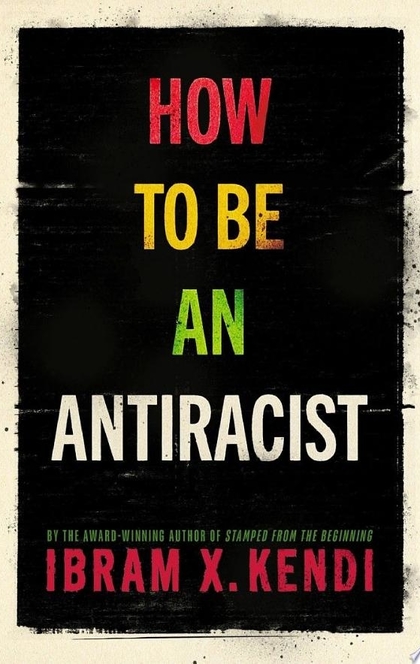
Margot Robbie Reading List - 48 Books to Consider
Margot Robbie
As BLM movement is gaining more and more recognition lately and Margot shared an educative list of books to participate and spread the word.
See all
0
likes
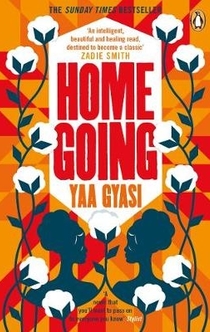
Homegoing
Written with tremendous sweep and power, Homegoing traces the generations of family who follow, as their destinies lead them through two continents and three hundred years of history, each life indeliably drawn, as the legacy of slavery is fully revealed in light of the present day.
See all
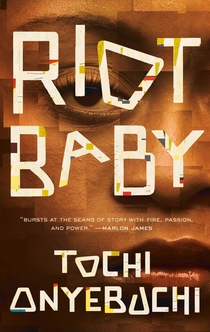
Riot Baby
“Riot Baby, Onyebuchi's first novel for adults, is as much the story of Ella and her brother, Kevin, as it is the story of black pain in America, of the extent and lineage of police brutality, racism and injustice in this country, written in prose as searing and precise as hot diamonds."—The New York Times"Riot Baby bursts at the seams of story with so much fire, passion and power that in the end it turns what we call a narrative into something different altogether."—Marlon JamesElla has a Thing. She sees a classmate grow up to become a caring nurse. A neighbor's son murdered in a drive-by shooting. Things that haven't happened yet. Kev, born while Los Angeles burned around them, wants to protect his sister from a power that could destroy her. But when Kev is incarcerated, Ella must decide what it means to watch her brother suffer while holding the ability to wreck cities in her hands.Rooted in the hope that can live in anger, Riot Baby is as much an intimate family story as a global dystopian narrative. It burns fearlessly toward revolution and has quietly devastating things to say about love, fury, and the black American experience.Ella and Kev are both shockingly human and immeasurably powerful. Their childhoods are defined and destroyed by racism. Their futures might alter the world.“[Tochi] Onyebuchi has woven a story as uplifting as it is heartbreaking, an epic ode to the future and past, tiny acts of resistance, love, and the wild unstoppable sweep of revolution.”—Daniel José OlderAt the Publisher's request, this title is being sold without Digital Rights Management Software (DRM) applied.
See all
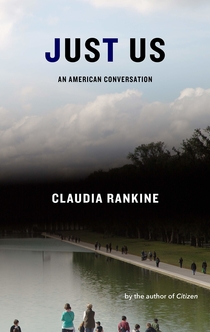
Just Us
Claudia Rankine’s Citizen changed the conversation—Just Us urges all of us into itAs everyday white supremacy becomes increasingly vocalized with no clear answers at hand, how best might we approach one another? Claudia Rankine, without telling us what to do, urges us to begin the discussions that might open pathways through this divisive and stuck moment in American history.Just Us is an invitation to discover what it takes to stay in the room together, even and especially in breaching the silence, guilt, and violence that follow direct addresses of whiteness. Rankine’s questions disrupt the false comfort of our culture’s liminal and private spaces—the airport, the theater, the dinner party, the voting booth—where neutrality and politeness live on the surface of differing commitments, beliefs, and prejudices as our public and private lives intersect.This brilliant arrangement of essays, poems, and images includes the voices and rebuttals of others: white men in first class responding to, and with, their white male privilege; a friend’s explanation of her infuriating behavior at a play; and women confronting the political currency of dying their hair blond, all running alongside fact-checked notes and commentary that complements Rankine’s own text, complicating notions of authority and who gets the last word.Sometimes wry, often vulnerable, and always prescient, Just Us is Rankine’s most intimate work, less interested in being right than in being true, being together.
See all
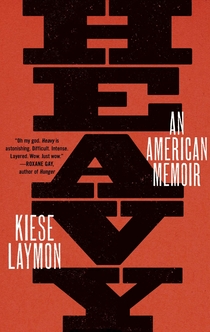
Heavy
*Named a Best Book of 2018 by the New York Times, Publishers Weekly, NPR, Broadly, Buzzfeed (Nonfiction), The Undefeated, Library Journal (Biography/Memoirs), The Washington Post (Nonfiction), Southern Living (Southern), Entertainment Weekly, and The New York Times Critics* In this powerful, provocative, and universally lauded memoir—winner of the Andrew Carnegie Medal and finalist for the Kirkus Prize—genre-bending essayist and novelist Kiese Laymon “provocatively meditates on his trauma growing up as a black man, and in turn crafts an essential polemic against American moral rot” (Entertainment Weekly).In Heavy, Laymon writes eloquently and honestly about growing up a hard-headed black son to a complicated and brilliant black mother in Jackson, Mississippi. From his early experiences of sexual violence, to his suspension from college, to time in New York as a college professor, Laymon charts his complex relationship with his mother, grandmother, anorexia, obesity, sex, writing, and ultimately gambling. Heavy is a “gorgeous, gutting…generous” (The New York Times) memoir that combines personal stories with piercing intellect to reflect both on the strife of American society and on Laymon’s experiences with abuse. By attempting to name secrets and lies he and his mother spent a lifetime avoiding, he asks us to confront the terrifying possibility that few in this nation actually know how to responsibly love, and even fewer want to live under the weight of actually becoming free. “A book for people who appreciated Roxane Gay’s memoir Hunger” (Milwaukee Journal Sentinel), Heavy is defiant yet vulnerable, an insightful, often comical exploration of weight, identity, art, friendship, and family through years of haunting implosions and long reverberations. “You won’t be able to put [this memoir] down…It is packed with reminders of how black dreams get skewed and deferred, yet are also pregnant with the possibility that a kind of redemption may lie in intimate grappling with black realities” (The Atlantic).
See all
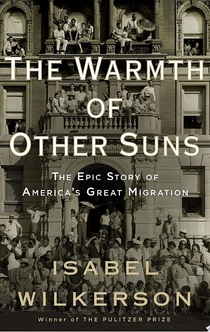
The Warmth of Other Suns
In this epic, beautifully written masterwork, Pulitzer Prize–winning author Isabel Wilkerson chronicles one of the great untold stories of American history: the decades-long migration of black citizens who fled the South for northern and western cities, in search of a better life.NATIONAL BOOK CRITICS CIRCLE AWARD WINNERLYNTON HISTORY PRIZE WINNERHEARTLAND AWARD WINNER DAYTON LITERARY PEACE PRIZE FINALIST NAMED ONE OF THE TEN BEST BOOKS OF THE YEAR BYThe New York Times • USA Today • O: The Oprah Magazine • Amazon • Publishers Weekly • Salon • Newsday • The Daily Beast NAMED ONE OF THE BEST BOOKS OF THE YEAR BYThe New Yorker • The Washington Post • The Economist • Boston Globe • San Francisco Chronicle • Chicago Tribune • Entertainment Weekly • Philadelphia Inquirer • The Guardian • The Seattle Times • St. Louis Post-Dispatch • The Christian Science Monitor From 1915 to 1970, this exodus of almost six million people changed the face of America. Wilkerson compares this epic migration to the migrations of other peoples in history. She interviewed more than a thousand people, and gained access to new data and official records, to write this definitive and vividly dramatic account of how these American journeys unfolded, altering our cities, our country, and ourselves. With stunning historical detail, Wilkerson tells this story through the lives of three unique individuals: Ida Mae Gladney, who in 1937 left sharecropping and prejudice in Mississippi for Chicago, where she achieved quiet blue-collar success and, in old age, voted for Barack Obama when he ran for an Illinois Senate seat; sharp and quick-tempered George Starling, who in 1945 fled Florida for Harlem, where he endangered his job fighting for civil rights, saw his family fall, and finally found peace in God; and Robert Foster, who left Louisiana in 1953 to pursue a medical career, the personal physician to Ray Charles as part of a glitteringly successful medical career, which allowed him to purchase a grand home where he often threw exuberant parties.Wilkerson brilliantly captures their first treacherous and exhausting cross-country trips by car and train and their new lives in colonies that grew into ghettos, as well as how they changed these cities with southern food, faith, and culture and improved them with discipline, drive, and hard work. Both a riveting microcosm and a major assessment, The Warmth of Other Suns is a bold, remarkable, and riveting work, a superb account of an “unrecognized immigration” within our own land. Through the breadth of its narrative, the beauty of the writing, the depth of its research, and the fullness of the people and lives portrayed herein, this book is destined to become a classic.
See all

Think Black
“Powerful memoir. . .Ford’s thought-provoking narrative tells the story of African-American pride and perseverance.” –Publisher’s Weekly (Starred)“A masterful storyteller, Ford interweaves his personal story with the backdrop of the social movements unfolding at that time, providing a revealing insider’s view of the tech industry. . . simultaneously informative and entertaining. . . A powerful, engrossing look at race and technology.”–Kirkus Review (Starred)In this thought-provoking and heartbreaking memoir, an award-winning writer tells the story of his father, John Stanley Ford, the first black software engineer at IBM, revealing how racism insidiously affected his father’s view of himself and their relationship.In 1947, Thomas J. Watson set out to find the best and brightest minds for IBM. At City College he met young accounting student John Stanley Ford and hired him to become IBM’s first black software engineer. But not all of the company’s white employees refused to accept a black colleague and did everything in their power to humiliate, subvert, and undermine Ford.Yet Ford would not quit. Viewing the job as the opportunity of a lifetime, he comported himself with dignity and professionalism, and relied on his community and his "street smarts" to succeed. He did not know that his hiring was meant to distract from IBM’s dubious business practices, including its involvement in the Holocaust, eugenics, and apartheid.While Ford remained at IBM, it came at great emotional cost to himself and his family, especially his son Clyde. Overlooked for promotions he deserved, the embittered Ford began blaming his fate on his skin color and the notion that darker-skinned people like him were less intelligent and less capable—beliefs that painfully divided him and Clyde, who followed him to IBM two decades later.From his first day of work—with his wide-lapelled suit, bright red turtleneck, and huge afro—Clyde made clear he was different. Only IBM hadn’t changed. As he, too, experienced the same institutional racism, Clyde began to better understand the subtle yet daring ways his father had fought back.
See all

White Negroes
Exposes the new generation of whiteness thriving at the expense and borrowed ingenuity of black people—and explores how this intensifies racial inequality.American culture loves blackness. From music and fashion to activism and language, black culture constantly achieves worldwide influence. Yet, when it comes to who is allowed to thrive from black hipness, the pioneers are usually left behind as black aesthetics are converted into mainstream success—and white profit.Weaving together narrative, scholarship, and critique, Lauren Michele Jackson reveals why cultural appropriation—something that’s become embedded in our daily lives—deserves serious attention. It is a blueprint for taking wealth and power, and ultimately exacerbates the economic, political, and social inequity that persists in America. She unravels the racial contradictions lurking behind American culture as we know it—from shapeshifting celebrities and memes gone viral to brazen poets, loveable potheads, and faulty political leaders.An audacious debut, White Negroes brilliantly summons a re-interrogation of Norman Mailer’s infamous 1957 essay of a similar name. It also introduces a bold new voice in Jackson. Piercing, curious, and bursting with pop cultural touchstones, White Negroes is a dispatch in awe of black creativity everywhere and an urgent call for our thoughtful consumption.
See all
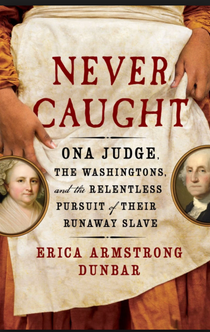
Never Caught
A startling and eye-opening look into America’s First Family, Never Caught is the powerful story about a daring woman of “extraordinary grit” (The Philadelphia Inquirer). When George Washington was elected president, he reluctantly left behind his beloved Mount Vernon to serve in Philadelphia, the temporary seat of the nation’s capital. In setting up his household he brought along nine slaves, including Ona Judge. As the President grew accustomed to Northern ways, there was one change he couldn’t abide: Pennsylvania law required enslaved people be set free after six months of residency in the state. Rather than comply, Washington decided to circumvent the law. Every six months he sent the slaves back down south just as the clock was about to expire. Though Ona Judge lived a life of relative comfort, she was denied freedom. So, when the opportunity presented itself one clear and pleasant spring day in Philadelphia, Judge left everything she knew to escape to New England. Yet freedom would not come without its costs. At just twenty-two-years-old, Ona became the subject of an intense manhunt led by George Washington, who used his political and personal contacts to recapture his property. “A crisp and compulsively readable feat of research and storytelling” (USA TODAY), historian and National Book Award finalist Erica Armstrong Dunbar weaves a powerful tale and offers fascinating new scholarship on how one young woman risked everything to gain freedom from the famous founding father.
See all
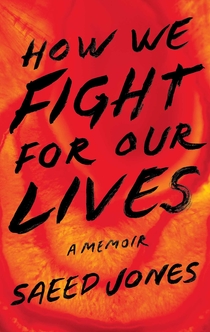
How We Fight for Our Lives
WINNER OF THE 2019 KIRKUS PRIZE IN NONFICTION WINNER OF THE 2020 STONEWALL BOOK AWARD-ISRAEL FISHMAN NONFICTION AWARD ONE OF THE NEW YORK TIMES’S 100 NOTABLE BOOKS OF 2019 One of the best books of the year as selected by The Washington Post; NPR; Time; The New Yorker; O, The Oprah Magazine; Harper’s Bazaar; Elle; Kirkus Reviews; Publishers Weekly; BuzzFeed; Goodreads; School Library Journal; and many more. “A moving, bracingly honest memoir that reads like fevered poetry.” —The New York Times Book Review “Jones’s voice and sensibility are so distinct that he turns one of the oldest of literary genres inside out and upside down.” —NPR’S Fresh Air“People don’t just happen,” writes Saeed Jones. “We sacrifice former versions of ourselves. We sacrifice the people who dared to raise us. The ‘I’ it seems doesn’t exist until we are able to say, ‘I am no longer yours.’” Haunted and haunting, How We Fight for Our Lives is a stunning coming-of-age memoir. Jones tells the story of a young, black, gay man from the South as he fights to carve out a place for himself, within his family, within his country, within his own hopes, desires, and fears. Through a series of vignettes that chart a course across the American landscape, Jones draws readers into his boyhood and adolescence—into tumultuous relationships with his family, into passing flings with lovers, friends, and strangers. Each piece builds into a larger examination of race and queerness, power and vulnerability, love and grief: a portrait of what we all do for one another—and to one another—as we fight to become ourselves. An award-winning poet, Jones has developed a style that’s as beautiful as it is powerful—a voice that’s by turns a river, a blues, and a nightscape set ablaze. How We Fight for Our Lives is a one-of-a-kind memoir and a book that cements Saeed Jones as an essential writer for our time.
See all

They Were Her Property
A bold and searing investigation into the role of white women in the American slave economyBridging women’s history, the history of the South, and African American history, this book makes a bold argument about the role of white women in American slavery. Historian Stephanie E. Jones-Rogers draws on a variety of sources to show that slave†‘owning women were sophisticated economic actors who directly engaged in and benefited from the South’s slave market. Because women typically inherited more slaves than land, enslaved people were often their primary source of wealth. Not only did white women often refuse to cede ownership of their slaves to their husbands, they employed management techniques that were as effective and brutal as those used by slave†‘owning men. White women actively participated in the slave market, profited from it, and used it for economic and social empowerment. By examining the economically entangled lives of enslaved people and slave-owning women, Jones-Rogers presents a narrative that forces us to rethink the economics and social conventions of slaveholding America.
See all

The Fire Next Time
A national bestseller when it first appeared in 1963, The Fire Next Time galvanized the nation and gave passionate voice to the emerging civil rights movement. At once a powerful evocation of James Baldwin's early life in Harlem and a disturbing examination of the consequences of racial injustice, the book is an intensely personal and provocative document. It consists of two "letters," written on the occasion of the centennial of the Emancipation Proclamation, that exhort Americans, both black and white, to attack the terrible legacy of racism. Described by The New York Times Book Review as "sermon, ultimatum, confession, deposition, testament, and chronicle...all presented in searing, brilliant prose," The Fire Next Time stands as a classic of our literature.
See all

The Cross of Redemption
The Cross of Redemption is a revelation by an American literary master: a gathering of essays, articles, polemics, reviews, and interviews that have never before appeared in book form. James Baldwin was one of the most brilliant and provocative literary figures of the past century, renowned for his fierce engagement with issues haunting our common history. In The Cross of Redemption we have Baldwin discoursing on, among other subjects, the possibility of an African-American president and what it might mean; the hypocrisy of American religious fundamentalism; the black church in America; the trials and tribulations of black nationalism; anti-Semitism; the blues and boxing; Russian literary masters; and the role of the writer in our society. Prophetic and bracing, The Cross of Redemption is a welcome and important addition to the works of a cosmopolitan and canonical American writer who still has much to teach us about race, democracy, and personal and national identity. As Michael Ondaatje has remarked, “If van Gogh was our nineteenth-century artist-saint, Baldwin [was] our twentieth-century one.”
See all
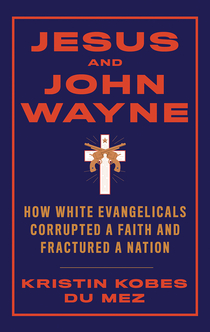
Jesus and John Wayne: How White Evangelicals Corrupted a Faith and Fractured a Nation
A scholar of American Christianity presents a seventy-five-year history of evangelicalism that identifies the forces that have turned Donald Trump into a hero of the Religious Right. How did a libertine who lacks even the most basic knowledge of the Christian faith win 81 percent of the white evangelical vote in 2016? And why have white evangelicals become a presidential reprobate’s staunchest supporters? These are among the questions acclaimed historian Kristin Kobes Du Mez asks in Jesus and John Wayne, which delves beyond facile headlines to explain how white evangelicals have brought us to our fractured political moment. Challenging the commonly held assumption that the “moral majority” backed Donald Trump for purely pragmatic reasons, Du Mez reveals that Donald Trump in fact represents the fulfillment, rather than the betrayal, of white evangelicals’ most deeply held values. Jesus and John Wayne is a sweeping account of the last seventy-five years of white evangelicalism, showing how American evangelicals have worked for decades to replace the Jesus of the Gospels with an idol of rugged masculinity and Christian nationalism, or in the words of one modern chaplain, with “a spiritual badass.” As Du Mez explains, the key to understanding this transformation is to recognize the role of culture in modern American evangelicalism. Many of today’s evangelicals may not be theologically astute, but they know their VeggieTales, they’ve read John Eldredge’s Wild at Heart, and they learned about purity before they learned about sex—and they have a silver ring to prove it. Evangelical books, films, music, clothing, and merchandise shape the beliefs of millions. And evangelical popular culture is teeming with muscular heroes—mythical warriors and rugged soldiers, men like Oliver North, Ronald Reagan, Mel Gibson, and the Duck Dynasty clan, who assert white masculine power in defense of “Christian America.” Chief among these evangelical legends is John Wayne, an icon of a lost time when men were uncowed by political correctness, unafraid to tell it like it was, and did what needed to be done. Trump, in other words, is hardly the first flashy celebrity to capture evangelicals’ hearts and minds, nor is he the first strongman to promise evangelicals protection and power. Indeed, the values and viewpoints at the heart of white evangelicalism today—patriarchy, authoritarian rule, aggressive foreign policy, fear of Islam, ambivalence toward #MeToo, and opposition to Black Lives Matter and the LGBTQ community—are likely to persist long after Trump leaves office. A much-needed reexamination, Jesus and John Wayne explains why evangelicals have rallied behind the least-Christian president in American history and how they have transformed their faith in the process, with enduring consequences for all of us.
See all

White Rage
National Book Critics Circle Award WinnerNew York Times BestsellerUSA Today BestsellerA New York Times Notable Book of the YearA Washington Post Notable Nonfiction Book of the YearA Boston Globe Best Book of 2016A Chicago Review of Books Best Nonfiction Book of 2016From the Civil War to our combustible present, acclaimed historian Carol Anderson reframes our continuing conversation about race, chronicling the powerful forces opposed to black progress in America.As Ferguson, Missouri, erupted in August 2014, and media commentators across the ideological spectrum referred to the angry response of African Americans as “black rage,” historian Carol Anderson wrote a remarkable op-ed in The Washington Post suggesting that this was, instead, "white rage at work. With so much attention on the flames," she argued, "everyone had ignored the kindling." Since 1865 and the passage of the Thirteenth Amendment, every time African Americans have made advances towards full participation in our democracy, white reaction has fueled a deliberate and relentless rollback of their gains. The end of the Civil War and Reconstruction was greeted with the Black Codes and Jim Crow; the Supreme Court's landmark 1954 Brown v. Board of Education decision was met with the shutting down of public schools throughout the South while taxpayer dollars financed segregated white private schools; the Civil Rights Act of 1964 and Voting Rights Act of 1965 triggered a coded but powerful response, the so-called Southern Strategy and the War on Drugs that disenfranchised millions of African Americans while propelling presidents Nixon and Reagan into the White House, and then the election of America's first black President, led to the expression of white rage that has been as relentless as it has been brutal. Carefully linking these and other historical flashpoints when social progress for African Americans was countered by deliberate and cleverly crafted opposition, Anderson pulls back the veil that has long covered actions made in the name of protecting democracy, fiscal responsibility, or protection against fraud, rendering visible the long lineage of white rage. Compelling and dramatic in the unimpeachable history it relates, White Rage will add an important new dimension to the national conversation about race in America.
See all

Killing the Black Body
In 1997, this groundbreaking book made a powerful entrance into the national conversation on race. In a media landscape dominated by racially biased images of welfare queens and crack babies, Killing the Black Body exposed America’s systemic abuse of Black women’s bodies. From slave masters’ economic stake in bonded women’s fertility to government programs that coerced thousands of poor Black women into being sterilized as late as the 1970s, these abuses pointed to the degradation of Black motherhood—and the exclusion of Black women’s reproductive needs in mainstream feminist and civil rights agendas. Now, some two decades later, Killing the Black Body has not only exerted profound influence, but also remains as crucial as ever—a rallying cry for education, awareness, and action on extending reproductive justice to all women.
See all

Well-Read Black Girl
NOMINATED FOR AN NAACP IMAGE AWARD • An inspiring collection of essays by black women writers, curated by the founder of the popular book club Well-Read Black Girl, on the importance of recognizing ourselves in literature. “Yes, Well-Read Black Girl is as good as it sounds. . . . [Glory Edim] gathers an all-star cast of contributors—among them Lynn Nottage, Jesmyn Ward, and Gabourey Sidibe.”—O: The Oprah Magazine Remember that moment when you first encountered a character who seemed to be written just for you? That feeling of belonging remains with readers the rest of their lives—but not everyone regularly sees themselves in the pages of a book. In this timely anthology, Glory Edim brings together original essays by some of our best black women writers to shine a light on how important it is that we all—regardless of gender, race, religion, or ability—have the opportunity to find ourselves in literature. Contributors include Jesmyn Ward (Sing, Unburied, Sing), Lynn Nottage (Sweat), Jacqueline Woodson (Another Brooklyn), Gabourey Sidibe (This Is Just My Face), Morgan Jerkins (This Will Be My Undoing), Tayari Jones (An American Marriage), Rebecca Walker (Black, White and Jewish), and Barbara Smith (Home Girls: A Black Feminist Anthology) Whether it’s learning about the complexities of femalehood from Zora Neale Hurston and Toni Morrison, finding a new type of love in The Color Purple, or using mythology to craft an alternative black future, the subjects of each essay remind us why we turn to books in times of both struggle and relaxation. As she has done with her book club–turned–online community Well-Read Black Girl, in this anthology Glory Edim has created a space in which black women’s writing and knowledge and life experiences are lifted up, to be shared with all readers who value the power of a story to help us understand the world and ourselves.Praise for Well-Read Black Girl“Each essay can be read as a dispatch from the vast and wonderfully complex location that is black girlhood and womanhood. . . . They present literary encounters that may at times seem private and ordinary—hours spent in the children’s section of a public library or in a college classroom—but are no less monumental in their impact.”—The Washington Post “A wonderful collection of essays.”—Essence
See all

Good Talk
A “beautiful and eye-opening” (Jacqueline Woodson), “hilarious and heart-rending” (Celeste Ng) graphic memoir about American identity, interracial families, and the realities that divide us, from the acclaimed author of The Sleepwalker’s Guide to Dancing.NAMED ONE OF THE TEN BEST BOOKS OF THE YEAR BY Chicago Tribune • The New York Public Library • Publishers Weekly AND ONE OF THE BEST BOOKS OF THE YEAR BY The New York Times Book Review • Time • BuzzFeed • Esquire • Library Journal • Kirkus Reviews“How brown is too brown?”“Can Indians be racist?”“What does real love between really different people look like?”Like many six-year-olds, Mira Jacob’s half-Jewish, half-Indian son, Z, has questions about everything. At first they are innocuous enough, but as tensions from the 2016 election spread from the media into his own family, they become much, much more complicated. Trying to answer him honestly, Mira has to think back to where she’s gotten her own answers: her most formative conversations about race, color, sexuality, and, of course, love. Written with humor and vulnerability, this deeply relatable graphic memoir is a love letter to the art of conversation—and to the hope that hovers in our most difficult questions.LONGLISTED FOR THE PEN/OPEN BOOK AWARD “Jacob’s earnest recollections are often heartbreaking, but also infused with levity and humor. What stands out most is the fierce compassion with which she parses the complexities of family and love.”—Time“Good Talk uses a masterful mix of pictures and words to speak on life’s most uncomfortable conversations.”—io9“Mira Jacob just made me toss everything I thought was possible in a book-as-art-object into the garbage. Her new book changes everything.”—Kiese Laymon, New York Times bestselling author of Heavy
See all
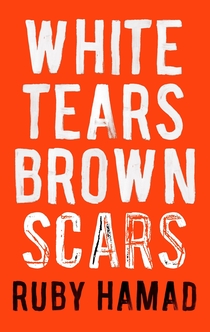
White Tears/Brown Scars
For readers of White Fragility, an explosive book of history and cultural criticism ("Ruby Hamad blows open inconvenient truths . . . in this powerful book"--Marie Claire Australia) which argues that white feminism, from Australia to Zimbabwe to the United States, has been a weapon of white supremacy and patriarchy deployed against Black and Indigenous women, and women of color. Taking us from the slave era, when white women fought in court to keep "ownership" of their slaves, through the centuries of colonialism, when they offered a soft face for brutal tactics, to the modern workplace, White Tears/Brown Scars tells a charged story of white women's active participation in campaigns of oppression. It offers a long overdue validation of the experiences of women of color. Discussing subjects as varied as The Hunger Games, Alexandria Ocasio-Cortez, the viral BBQ Becky video, and 19th century lynchings of Mexicans in the American Southwest, Ruby Hamad undertakes a new investigation of gender and race. She shows how the division between innocent white women and racialized, sexualized women of color was created, and why this division is crucial to confront. Along the way, there are revelatory responses to questions like: Why are white men not troubled by sexual assault on women? (See Christine Blasey Ford.) With rigor and precision, Hamad builds a powerful argument about the legacy of white superiority that we are socialized within, a reality that we must apprehend in order to fight.
See all

So You Want to Talk About Race
In this New York Times bestseller, Ijeoma Oluo offers a hard-hitting but user-friendly examination of race in AmericaWidespread reporting on aspects of white supremacy--from police brutality to the mass incarceration of Black Americans--has put a media spotlight on racism in our society. Still, it is a difficult subject to talk about. How do you tell your roommate her jokes are racist? Why did your sister-in-law take umbrage when you asked to touch her hair--and how do you make it right? How do you explain white privilege to your white, privileged friend? In So You Want to Talk About Race, Ijeoma Oluo guides readers of all races through subjects ranging from intersectionality and affirmative action to "model minorities" in an attempt to make the seemingly impossible possible: honest conversations about race and racism, and how they infect almost every aspect of American life. "Oluo gives us--both white people and people of color--that language to engage in clear, constructive, and confident dialogue with each other about how to deal with racial prejudices and biases."--National Book Review "Generous and empathetic, yet usefully blunt . . . it's for anyone who wants to be smarter and more empathetic about matters of race and engage in more productive anti-racist action."--Salon (Required Reading)
See all

Minor Feelings
A ruthlessly honest, emotionally charged, and utterly original exploration of Asian American consciousness and the struggle to be human“Brilliant . . . To read this book is to become more human.”—Claudia Rankine, author of Citizen Poet and essayist Cathy Park Hong fearlessly and provocatively blends memoir, cultural criticism, and history to expose fresh truths about racialized consciousness in America. Part memoir and part cultural criticism, this collection is vulnerable, humorous, and provocative—and its relentless and riveting pursuit of vital questions around family and friendship, art and politics, identity and individuality, will change the way you think about our world. Binding these essays together is Hong’s theory of “minor feelings.” As the daughter of Korean immigrants, Cathy Park Hong grew up steeped in shame, suspicion, and melancholy. She would later understand that these “minor feelings” occur when American optimism contradicts your own reality—when you believe the lies you’re told about your own racial identity. Minor feelings are not small, they’re dissonant—and in their tension Hong finds the key to the questions that haunt her. With sly humor and a poet’s searching mind, Hong uses her own story as a portal into a deeper examination of racial consciousness in America today. This intimate and devastating book traces her relationship to the English language, to shame and depression, to poetry and female friendship. A radically honest work of art, Minor Feelings forms a portrait of one Asian American psyche—and of a writer’s search to both uncover and speak the truth.Praise for Minor Feelings“Hong begins her new book of essays with a bang. . . .The essays wander a variegated terrain of memoir, criticism and polemic, oscillating between smooth proclamations of certainty and twitches of self-doubt. . . . Minor Feelings is studded with moments [of] candor and dark humor shot through with glittering self-awareness.”—The New York Times“Hong uses her own experiences as a jumping off point to examine race and emotion in the United States.”—Newsweek (40 Must-Read Fiction and Nonfiction Books to Savor This Spring)“Powerful . . . [Hong] brings together memoiristic personal essay and reflection, historical accounts and modern reporting, and other works of art and writing, in order to amplify a multitude of voices and capture Asian America as a collection of contradictions. She does so with sharp wit and radical transparency.”—Salon
See all
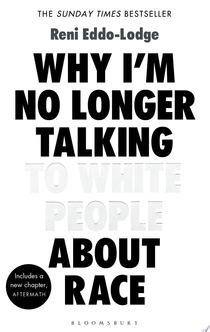
Why I’m No Longer Talking to White People About Race
'Every voice raised against racism chips away at its power. We can't afford to stay silent. This book is an attempt to speak'The book that sparked a national conversation. Exploring everything from eradicated black history to the inextricable link between class and race, Why I'm No Longer Talking to White People About Race is the essential handbook for anyone who wants to understand race relations in Britain today. THE SUNDAY TIMES BESTSELLERWINNER OF THE BRITISH BOOK AWARDS NON-FICTION NARRATIVE BOOK OF THE YEAR 2018FOYLES NON-FICTION BOOK OF THE YEARBLACKWELL'S NON-FICTION BOOK OF THE YEARWINNER OF THE JHALAK PRIZELONGLISTED FOR THE BAILLIE GIFFORD PRIZE FOR NON-FICTIONLONGLISTED FOR THE ORWELL PRIZESHORTLISTED FOR A BOOKS ARE MY BAG READERS AWARD
See all
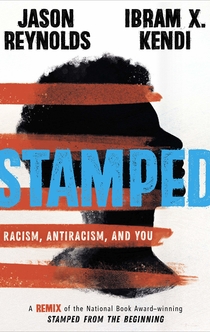
Stamped: Racism, Antiracism, and You
The #1 New York Times bestseller and a USAToday bestseller! A timely, crucial, and empowering exploration of racism--and antiracism--in America.This is NOT a history book.This is a book about the here and now. A book to help us better understand why we are where we are.A book about race. The construct of race has always been used to gain and keep power, to create dynamics that separate and silence. This remarkable reimagining of Dr. Ibram X. Kendi's National Book Award-winning Stamped from the Beginning reveals the history of racist ideas in America, and inspires hope for an antiracist future. It takes you on a race journey from then to now, shows you why we feel how we feel, and why the poison of racism lingers. It also proves that while racist ideas have always been easy to fabricate and distribute, they can also be discredited. Through a gripping, fast-paced, and energizing narrative written by beloved award-winner Jason Reynolds, this book shines a light on the many insidious forms of racist ideas--and on ways readers can identify and stamp out racist thoughts in their daily lives.Download the free educator guide here: https://www.hachettebookgroup.com/wp-content/uploads/2020/03/Stamped-Educator-Guide.pdf
See all
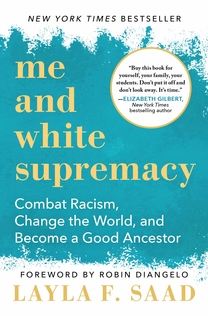
Me and White Supremacy
'An indispensable resource for white people who want to challenge white supremacy but don't know where to begin' Robin DiAngelo, author of New York Times bestseller WHITE FRAGILITY'It should be mandatory reading ... Buy the book, do the work and then push more copies into the hands of everyone you know' Emma Gannon'Confrontational and much-needed' Stylist'She is no-joke changing the world and, for what it's worth, the way I live my life.'Anne Hathaway___________Me and White Supremacy shows readers how to dismantle the privilege within themselves so that they can stop (often unconsciously) inflicting damage on people of colour, and in turn, help other white people do better, too.When Layla Saad began an Instagram challenge called #MeAndWhiteSupremacy, she never predicted it would spread as widely as it did. She encouraged people to own up and share their racist behaviours, big and small. She was looking for truth, and she got it. Thousands of people participated, and over 90,000 people downloaded the book.The updated and expanded Me and White Supremacy takes the work deeper by adding more historical and cultural contexts, sharing moving stories and anecdotes, and including expanded definitions, examples, and further resources.Awareness leads to action, and action leads to change. The numbers show that readers are ready to do this work - let's give it to them.
See all

How To Be an Antiracist
**NEW YORK TIMES BESTSELLER**'Could hardly be more relevant ... it feels like a light switch being flicked on' OWEN JONESNot being racist is not enough. We have to be antiracist.In this rousing and deeply empathetic book, Ibram X. Kendi, founding director of the Antiracism Research and Policy Center, shows that when it comes to racism, neutrality is not an option: until we become part of the solution, we can only be part of the problem. Using his extraordinary gifts as a teacher and story-teller, Kendi helps us recognise that everyone is, at times, complicit in racism whether they realise it or not, and by describing with moving humility his own journey from racism to antiracism, he shows us how instead to be a force for good. Along the way, Kendi punctures all the myths and taboos that so often cloud our understanding, from arguments about what race is and whether racial differences exist to the complications that arise when race intersects with ethnicity, class, gender and sexuality. In the process he demolishes the myth of the post-racial society and builds from the ground up a vital new understanding of racism – what it is, where it is hidden, how to identify it and what to do about it.
See all






